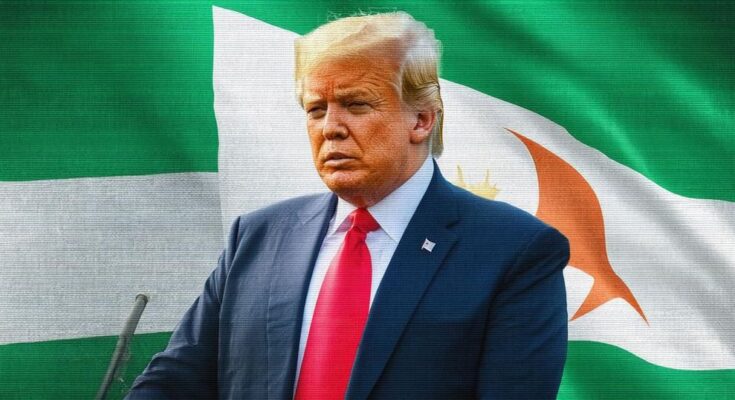The Gulf states, particularly Saudi Arabia and the UAE, appear poised to support Donald Trump in the upcoming elections, as they perceive him as a more reliable ally for advancing their geopolitical ambitions compared to Vice President Kamala Harris. Trump’s previous administration provided substantial U.S. backing through arms deals and a firm stance against Iran, which align with the Gulf states’ strategic interests, particularly amidst the ongoing conflict in Gaza. Harris’s anticipated diplomatic approach may threaten these interests, making a Trump presidency a more favorable scenario for the Gulf monarchies.
The potential backing of former President Donald Trump by Saudi Arabia and the United Arab Emirates (UAE) highlights a strategic pivot in their foreign policy as they seek to enhance their regional dominance amidst heightened tension in the Middle East, particularly in the context of the ongoing conflict in Gaza. The Gulf states perceive Trump’s approach to diplomacy as more advantageous compared to the likely policies of Vice President Kamala Harris, the Democratic nominee for the presidency, which they fear could jeopardize their geopolitical ambitions. Currently, both Gulf nations are navigating an unstable landscape influenced by Israel’s military actions against Hamas, which exacerbate their anxieties regarding regional security. Despite the expectation that they might gravitate towards a more stable approach under Harris, her anticipated strategies, which include a rigorous stance on conflicts in Sudan and Yemen and a diplomatic engagement with Iran, starkly diverge from their objectives. In their perspective, Trump’s previous administration facilitated significant U.S. support that was pivotal in consolidating their standing in the region, particularly through arms deals and a firm anti-Iran policy. In contrast, Harris’s likely return to Obama-era diplomatic tactics—such as a potential re-engagement in the Iran nuclear deal—could impair the Gulf states’ security interests. Moreover, her government would likely impose greater restrictions on military sales to Saudi Arabia, which would run counter to the extensive support they garnered during Trump’s tenure. Trump’s administration catalyzed several strategic moves for the Gulf states, including a proposed mega deal that would establish comprehensive security and nuclear agreements between the U.S. and Saudi Arabia. This included a commitment from Riyadh to normalize relations with Israel, contingent upon advancements towards Palestinian statehood. The ongoing conflict in Gaza poses a significant hurdle to these negotiations, intensifying the urgency from the Gulf’s perspective. Similar aspirations are evident in Abu Dhabi, where Crown Prince Mohammed bin Zayed envisions leveraging Trump’s policies to fortify the UAE’s military position relative to its neighbors. The previous administration was instrumental in promoting the Abraham Accords, which significantly increased Emirati economic ties with Israel. In light of these factors, a second Trump presidency appears to offer both Gulf nations a more conducive environment to pursue their strategic interests with less scrutiny compared to a Harris administration.
This analysis delves into the probable support expected from the Gulf States for former President Trump in the upcoming election, especially in light of regional dynamics characterized by the conflict in Gaza and evolving geopolitical relationships. Historically, Trump’s administration has been seen as favorable towards Gulf interests, establishing strong military partnerships and arms deals, which stand in stark contrast to the anticipated diplomatic approach of Vice President Harris. Harris’s potential administration is expected to employ stricter foreign policies regarding arms sales and diplomatic engagement with Iran, which might undermine the Gulf states’ strategic calculations. In the framework of U.S. elections, the evolving positions of Saudi Arabia and the UAE signal their readiness to back a candidate who promises to enhance their security and regional ambitions without cumbersome political conditions. This alignment with former Trump policies could potentially escalate existing rivalries between the two states as they navigate to maintain their prominence in the region.
In conclusion, the Gulf states’ apparent preference for Donald Trump over Kamala Harris reflects their strategic objectives to secure a favorable U.S. foreign policy that aligns with their regional ambitions. The political dynamics exacerbated by the Israeli-Hamas conflict further compel these nations to seek a partnership that could reinforce their military and economic positions in the Middle East. As this situation unfolds, the implications of U.S. electoral outcomes will undoubtedly play a critical role in shaping the future of Gulf diplomacy and regional stability.
Original Source: foreignpolicy.com




